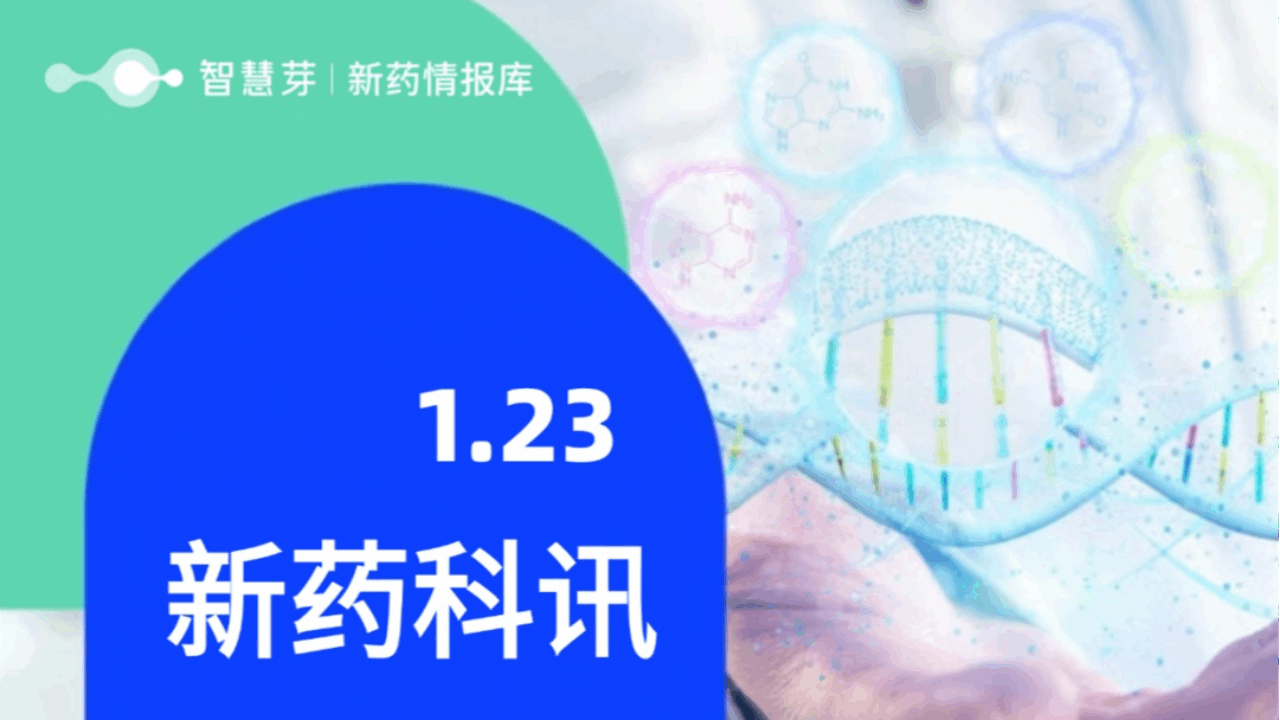预约演示
更新于:2025-05-07
Acute headache
急性头痛
更新于:2025-05-07
基本信息
别名 Acute headache、Acute headache (finding)、HEADACHE ACUTE + [3] |
简介- |
关联
2
项与 急性头痛 相关的药物靶点- |
作用机制- |
在研机构 |
原研机构 |
非在研适应症- |
最高研发阶段临床2期 |
首次获批国家/地区- |
首次获批日期1800-01-20 |
作用机制 5-HT7 receptor拮抗剂 |
在研机构- |
原研机构 |
在研适应症- |
最高研发阶段终止 |
首次获批国家/地区- |
首次获批日期1800-01-20 |
18
项与 急性头痛 相关的临床试验NCT06745648
Effectiveness of Carotid Sinus Massage in Modified Trendelenburg Position for Acute Headache Episodes: A Pilot Study
Headaches significantly impact patients; quality of life, with tension-type headaches and migraines being common. Evidence suggests that blood pressure and baroreceptors play a role in headaches. Carotid sinus massage (CSM) and the modified Trendelenburg position, techniques that stimulate carotid baroreceptors, may modulate autonomic nervous system activity to relieve headaches. The present study will be evaluate the effectiveness and safety of CSM in the modified Trendelenburg position for immediate headache relief.
Patients suffering from headaches or migraines will be subjected to a CSM while in the modified Trendelenburg position. The procedure will be repeated after a one-minute interval, up to three times. Clinical characteristics, hemodynamic parameters, and treatment responses will be recorded. Pain intensity will be assessed using a 10-point visual analog scale (VAS) before and after the intervention.
Patients suffering from headaches or migraines will be subjected to a CSM while in the modified Trendelenburg position. The procedure will be repeated after a one-minute interval, up to three times. Clinical characteristics, hemodynamic parameters, and treatment responses will be recorded. Pain intensity will be assessed using a 10-point visual analog scale (VAS) before and after the intervention.
开始日期2024-12-20 |
NCT06008795
Pterygopalatine Fossa (PPF) Block as an Opioid Sparing Treatment for Acute Headache in Aneurysmal Subarachnoid Hemorrhage
BLOCK-SAH is a phase II, multicenter, randomized, double-blinded, placebo-controlled clinical trial with a sequential parallel comparison design (SPCD) of bilateral pterygopalatine fossa (PPF) injections with 20mg ropivacaine + 4mg dexamethasone (active, PPF-block) compared to saline (placebo) for headache in survivors of aneurysmal subarachnoid hemorrhage (SAH), while monitoring intracranial arterial mean flow velocities with transcranial Doppler (TCD) peri-intervention (intervention = PPF-injections: active or placebo)
开始日期2023-12-17 |
申办/合作机构 |
NCT05707754
A Randomized Trial of a Sphenopalatine Ganglion Block With Bupivacaine for Acute Headache
The goal of this clinical trial is to compare the administration and dosage of bupivacaine for sphenopalatine ganglion (SPG) nerve block. The main question[s] it aims to answer are:
* Does a high dose (3ml) give more relief than a low dose (1ml)?
* Does bilateral administration give more relief than unilateral? Participants with headaches will be asked to lie down and have SPG block performed.
Researchers will compare dosage and administration to see how symptoms are reduced.
* Does a high dose (3ml) give more relief than a low dose (1ml)?
* Does bilateral administration give more relief than unilateral? Participants with headaches will be asked to lie down and have SPG block performed.
Researchers will compare dosage and administration to see how symptoms are reduced.
开始日期2023-03-06 |
申办/合作机构 |
100 项与 急性头痛 相关的临床结果
登录后查看更多信息
100 项与 急性头痛 相关的转化医学
登录后查看更多信息
0 项与 急性头痛 相关的专利(医药)
登录后查看更多信息
1,180
项与 急性头痛 相关的文献(医药)2025-12-01·Child's Nervous System
Pial arteriovenous fistula with a large intraparenchymal hemorrhage in a 9-year-old child: a case report and case-based mini review
Review
作者: Etter, Manina M ; Soleman, Jehuda ; Guzman, Raphael ; Psychogios, Marios-Nikos
2025-06-01·Pediatric Neurology
Patterns of Use and Benefit of Triptans in the Treatment of Acute Headache Worsening in Youth With Post-Traumatic Headache
Article
作者: de Prado, Blanca Marquez ; Panigrahi, Pratishtha ; Szperka, Christina L ; Shah, Ryan ; Raj, Nichelle ; Das, Soumyaa ; Master, Christina L ; Evans, Morgan ; Patterson Gentile, Carlyn ; Gentile Kruse, Caroline F ; Hershey, Andrew D
2025-05-01·The American Journal of Emergency Medicine
Treatment of headache reduces blood pressure among most patients with migraine and elevated blood pressure
Article
作者: Friedman, Benjamin W ; Sharpe, Shellyann ; Gupta, Chiraag ; Kareff, Hannah
14
项与 急性头痛 相关的新闻(医药)2025-01-23
1. 强生双抗组合疗法获欧盟批准,一线治疗NSCLC
1月22日,强生公司宣布,欧盟委员会已批准Lazcluze(lazertinib)与Rybrevant(amivantamab)联用,一线治疗携带表皮生长因子受体(EGFR)第19号外显子缺失(ex19del)或第21号外显子L858R突变的晚期非小细胞肺癌(NSCLC)成年患者。欧盟委员会的批准基于3期临床试验MARIPOSA的结果。该研究评估了Lazcluze联合Rybrevant,与活性对照osimertinib相比,一线治疗携带上述EGFR变异的NSCLC患者的疗效。分析显示,Rybrevant与Lazcluze联用,与活性对照药物相比,可将疾病进展或死亡风险降低30%。联合疗法与活性对照药物组患者的中位无进展生存期(PFS)分别为23.7个月与16.6个月。此外,联合疗法组的中位缓解持续时间(DOR)比活性对照药物长9个月(25.8个月比16.7个月)。
2. 溶瘤病毒+PD-1单抗联合疗法在美国申报上市,获FDA优先审评资格
1月22日,Replimune Group宣布,美国FDA已受理RP1(vusolimogene oderparepvec)与抗PD-1抗体nivolumab联用,治疗晚期黑色素瘤患者的生物制品许可申请(BLA),FDA同时授予该BLA优先审评资格,预计在2025年7月22日前完成审评。RP1是一款基于单纯疱疹病毒(HSV)的溶瘤病毒免疫疗法。它同时表达GALV-GP R-蛋白和粒细胞巨噬细胞集落刺激因子(GM-CSF),旨在增强肿瘤杀伤效力,癌细胞死亡的免疫原性,并激活全身性的抗肿瘤免疫反应。RP1通过注射到浅表和/或深层/内脏肿瘤中来治疗患者。它曾经获得FDA授予的突破性疗法认定。
3. 每3个月一次在家注射,偏头痛新药在中国申报上市
1月22日,CDE官网最新公示,梯瓦(Teva)公司申报的3.1类新药瑞玛奈珠单抗注射液上市申请已获得受理。公开资料显示,瑞玛奈珠单抗(fremanezumab)是一种人源化单克隆抗体(mAb),可选择性结合降钙素基因相关肽(CGRP)配体。该产品适用于成年患者偏头痛的预防性治疗。根据梯瓦公司此前新闻稿介绍,瑞玛奈珠单抗有两种给药方案:每月给药225mg,即每月一次皮下注射,或每季度给药675mg,即每3个月一次皮下注射。瑞玛奈珠单抗在2018年、2019年分别在美国和欧盟获批用于成年患者偏头痛的预防性治疗,并在2023年获广东省药品监督管理局授权,落地粤港澳大湾区。在中国的3期临床研究结果显示,瑞玛奈珠单抗起效迅速,显著减少患者偏头痛天数;瑞玛奈珠单抗显著减少每月急性头痛药物的使用天数。
4. 德琪医药公布CLDN18.2 ADC最新临床数据
1月22日,德琪医药在2025年美国临床肿瘤学会胃肠癌研讨会(ASCO GI 2025)上公布了ATN-022治疗晚期/转移性胃癌的I/II期CLINCH研究的最新数据。ATN-022 (又称ATG-022)是一种靶向CLDN18.2的抗体偶联药物(ADC)。截止到2024年11月22日,在剂量扩展阶段的21名CLDN 18.2表达IHC 2+ ≥ 20%的胃癌患者中,客观缓解率(ORR)为42.9%,疾病控制率(DCR)为95.2%。其中,9例部分缓解(PR),包括8例确认PR;11例疾病稳定(SD)。在10名CLDN 18.2表达IHC 2+ < 20%的胃癌患者中,ORR为30.0%(1例完全缓解[CR]和2例PR,所有PR/CR均经IHC 2+ < 5%的CLDN 18.2表达证实),DCR为50.0%。获得CR的患者已表现出持久的疗效,截至数据截止日期,该患者已参与研究超过14个月。
5. 歌礼制药潜在同类最佳小分子GLP-1R激动剂取得积极成果
近日,歌礼制药宣布,公司ASC30口服片治疗肥胖症患者的美国单剂量递增(SAD)研究(NCT06680440)取得积极顶线结果。ASC30是该公司自主研发的不募集β-抑制蛋白的小分子胰高血糖素样肽-1受体( GLP-1R)偏向激动剂,具有独特和差异化性质,使得每月一次皮下注射和每日一次口服给药均成为可能。该SAD研究由5个队列(2毫克、5毫克、10毫克、20毫克和40毫克)组成,共计40名肥胖症患者,于空腹状态下进行;研究结果显示:ASC30口服片显示出与剂量成比例的(dose-proportional)药代动力学(PK)特征,半衰期(t1/2)长达60小时,支持每日一次或更低频率的口服给药。新片剂(室温下稳定)在动物模型中的数据支持更低频率口服给药,或可达一周一次。整体安全性和耐受性良好。
1. 超12亿美元!乐普生物ADC新药达成国际授权合作
1月22日,乐普生物宣布与ArriVent BioPharma就针对消化道癌的抗体偶联药物(ADC)MRG007达成全球独家许可协议。根据协议,乐普生物授予ArriVent在大中华区(包括中国大陆、中国香港、中国澳门和中国台湾)以外地区开发、制造和商业化MRG007的全球独家许可。乐普生物将获得总计4700万美元的一次性首付款和近期里程碑付款,和最高达11.6亿美元的开发、注册和销售等里程碑付款,以及基于大中华区以外地区净销售额的分级特许权使用费。
内容来源于网络,如有侵权,请联系删除。

优先审批抗体药物偶联物临床结果临床申请合作
2025-01-23
药物研发进展
看前提示:以下新闻中药物、机构、靶点、适应症带链接🔗的加粗字体,点击即可一键直达查阅其最新研发进展。
1. 强生双抗组合疗法获欧盟批准,一线治疗NSCLC
1月22日,强生公司宣布,欧盟委员会已批准Lazcluze(lazertinib)与Rybrevant(amivantamab)联用,一线治疗携带表皮生长因子受体(EGFR)第19号外显子缺失(ex19del)或第21号外显子L858R突变的晚期非小细胞肺癌(NSCLC)成年患者。欧盟委员会的批准基于3期临床试验MARIPOSA的结果。该研究评估了Lazcluze联合Rybrevant,与活性对照osimertinib相比,一线治疗携带上述EGFR变异的NSCLC患者的疗效。分析显示,Rybrevant与Lazcluze联用,与活性对照药物相比,可将疾病进展或死亡风险降低30%。联合疗法与活性对照药物组患者的中位无进展生存期(PFS)分别为23.7个月与16.6个月。此外,联合疗法组的中位缓解持续时间(DOR)比活性对照药物长9个月(25.8个月比16.7个月)。
2. 溶瘤病毒+PD-1单抗联合疗法在美国申报上市,获FDA优先审评资格
1月22日,Replimune Group宣布,美国FDA已受理RP1(vusolimogene oderparepvec)与抗PD-1抗体nivolumab联用,治疗晚期黑色素瘤患者的生物制品许可申请(BLA),FDA同时授予该BLA优先审评资格,预计在2025年7月22日前完成审评。RP1是一款基于单纯疱疹病毒(HSV)的溶瘤病毒免疫疗法。它同时表达GALV-GP R-蛋白和粒细胞巨噬细胞集落刺激因子(GM-CSF),旨在增强肿瘤杀伤效力,癌细胞死亡的免疫原性,并激活全身性的抗肿瘤免疫反应。RP1通过注射到浅表和/或深层/内脏肿瘤中来治疗患者。它曾经获得FDA授予的突破性疗法认定。
3. 每3个月一次在家注射,偏头痛新药在中国申报上市
1月22日,CDE官网最新公示,梯瓦(Teva)公司申报的3.1类新药瑞玛奈珠单抗注射液上市申请已获得受理。公开资料显示,瑞玛奈珠单抗(fremanezumab)是一种人源化单克隆抗体(mAb),可选择性结合降钙素基因相关肽(CGRP)配体。该产品适用于成年患者偏头痛的预防性治疗。根据梯瓦公司此前新闻稿介绍,瑞玛奈珠单抗有两种给药方案:每月给药225mg,即每月一次皮下注射,或每季度给药675mg,即每3个月一次皮下注射。瑞玛奈珠单抗在2018年、2019年分别在美国和欧盟获批用于成年患者偏头痛的预防性治疗,并在2023年获广东省药品监督管理局授权,落地粤港澳大湾区。在中国的3期临床研究结果显示,瑞玛奈珠单抗起效迅速,显著减少患者偏头痛天数;瑞玛奈珠单抗显著减少每月急性头痛药物的使用天数。
4. 德琪医药公布CLDN18.2 ADC最新临床数据
1月22日,德琪医药在2025年美国临床肿瘤学会胃肠癌研讨会(ASCO GI 2025)上公布了ATN-022治疗晚期/转移性胃癌的I/II期CLINCH研究的最新数据。ATN-022 (又称ATG-022)是一种靶向CLDN18.2的抗体偶联药物(ADC)。截止到2024年11月22日,在剂量扩展阶段的21名CLDN 18.2表达IHC 2+ ≥ 20%的胃癌患者中,客观缓解率(ORR)为42.9%,疾病控制率(DCR)为95.2%。其中,9例部分缓解(PR),包括8例确认PR;11例疾病稳定(SD)。在10名CLDN 18.2表达IHC 2+ < 20%的胃癌患者中,ORR为30.0%(1例完全缓解[CR]和2例PR,所有PR/CR均经IHC 2+ < 5%的CLDN 18.2表达证实),DCR为50.0%。获得CR的患者已表现出持久的疗效,截至数据截止日期,该患者已参与研究超过14个月。
5. 歌礼制药潜在同类最佳小分子GLP-1R激动剂取得积极成果
近日,歌礼制药宣布,公司ASC30口服片治疗肥胖症患者的美国单剂量递增(SAD)研究(NCT06680440)取得积极顶线结果。ASC30是该公司自主研发的不募集β-抑制蛋白的小分子胰高血糖素样肽-1受体( GLP-1R)偏向激动剂,具有独特和差异化性质,使得每月一次皮下注射和每日一次口服给药均成为可能。该SAD研究由5个队列(2毫克、5毫克、10毫克、20毫克和40毫克)组成,共计40名肥胖症患者,于空腹状态下进行;研究结果显示:ASC30口服片显示出与剂量成比例的(dose-proportional)药代动力学(PK)特征,半衰期(t1/2)长达60小时,支持每日一次或更低频率的口服给药。新片剂(室温下稳定)在动物模型中的数据支持更低频率口服给药,或可达一周一次。整体安全性和耐受性良好。
行业资讯
1. 超12亿美元!乐普生物ADC新药达成国际授权合作
1月22日,乐普生物宣布与ArriVent BioPharma就针对消化道癌的抗体偶联药物(ADC)MRG007达成全球独家许可协议。根据协议,乐普生物授予ArriVent在大中华区(包括中国大陆、中国香港、中国澳门和中国台湾)以外地区开发、制造和商业化MRG007的全球独家许可。乐普生物将获得总计4700万美元的一次性首付款和近期里程碑付款,和最高达11.6亿美元的开发、注册和销售等里程碑付款,以及基于大中华区以外地区净销售额的分级特许权使用费。
本文内容均由智慧芽生物医药小编收集于公开网络平台,版权由智慧芽所有,未经智慧芽授权不得转载。已获授权的应在授权范围内使用,并注明来源,违反上述声明者,智慧芽将追究其相关法律责任。如您发现相关信息有任何版权侵扰或者信息错误,请及时联系我们进行删改处理。授权相关事宜请联系:phs@patsnap.com
优先审批上市批准临床3期突破性疗法临床结果
2025-01-22
·医药观澜
▎药明康德内容团队报道
今日(1月22日),中国国家药监局药品审评中心(CDE)官网最新公示,梯瓦(Teva)公司申报的3.1类新药瑞玛奈珠单抗注射液上市申请已获得受理。公开资料显示,瑞玛奈珠单抗(fremanezumab)是一种人源化单克隆抗体(mAb),可选择性结合降钙素基因相关肽(CGRP)配体。 该产品适用于成年患者偏头痛的预防性治疗。
根据梯瓦公司此前新闻稿介绍,瑞玛奈珠单抗有两种给药方案:每月给药225mg,即每月一次皮下注射,或每季度给药675mg,即每3个月一次皮下注射。此外,该产品可由医疗专业人员给药,亦可在家由患者或护理人员给药。
截图来源:CDE官网
CGRP信号通路是治疗偏头痛的热门靶点,全球范围内已经有多款CGRP受体或CGRP本身的抗体类疗法获批上市,用于偏头痛的预防治疗。瑞玛奈珠单抗即是一种人源化CGRP单克隆抗体,它可选择性结合CGRP配体,并阻断两种CGRP亚型(α-和β-CGRP)与受体结合。既往多项研究显示,瑞玛奈珠单抗可显著减少慢性偏头痛(CM)和发作性偏头痛(EM)患者的头痛天数,且安全性良好 。
瑞玛奈珠单抗在2018年、2019年分别在美国和欧盟获批用于成年患者偏头痛的预防性治疗,并在2023年获广东省药品监督管理局授权,落地粤港澳大湾区。
根据梯瓦公司近期新闻稿,瑞玛奈珠单抗在中国的3期临床研究结果已经发布。这是一项多中心、随机、双盲、安慰剂对照研究,旨在评估每月和每季度皮下注射瑞玛奈珠单抗预防性治疗成人偏头痛的疗效、安全性和耐受性。该研究共招募365名患者,按1:1:2的比例随机分组,分别接受每月一次或每季度一次皮下注射瑞玛奈珠单抗或安慰剂。结果显示:
瑞玛奈珠单抗起效迅速,显著减少患者偏头痛天数:治疗12周时,与安慰剂相比,瑞玛奈株单抗治疗组的每月偏头痛天数较基线平均减少幅度更大(-4.6天 vs -2.8天),且早在治疗第1周就观察到了偏头痛天数的减少。
瑞玛奈珠单抗显著减少每月急性头痛药物的使用天数:治疗12周时,与安慰剂相比,瑞玛奈株单抗治疗组每月使用任何急性头痛药物的平均天数较基线减少更多(-3.0天vs -1.1天),且早在第1个月就观察到了急性偏头痛治疗药物使用天数的减少。
瑞玛奈珠单抗减少每月偏头痛天数≥50%的患者比例更高:治疗12周时,与安慰剂相比,瑞玛奈株单抗治疗组中每月偏头痛天数减少≥50%的患者比例更高(58% vs 35%),且早在第1个月即显现出更高的有效率。
瑞玛奈珠单抗耐受性良好,未出现新的安全问题:所有治疗组中出现不良事件(AE)的受试者数量基本一致(每月给药组的AE数量更多),最常见的发生率高于安慰剂组的AE为注射部位反应(≥5%),晕眩、失眠、血胆红素升高、高脂血症(≥2%)。总体来说,中国人群的安全性和耐受性特征与全球研究一致,未出现新的安全问题。
偏头痛是一种常见的慢性疾病。世界卫生组织(WHO)将偏头痛列为10种致残性最强的内科疾病之一。该病的典型特征是持续4至72小时的间歇性发作,并可能引起恶心、呕吐、畏声、畏光的中度至重度搏动性头痛。此外,偏头痛的负担以及对再次发作的恐惧可能会对生活质量产生重大负面影响。
本次瑞玛奈珠单抗在中国申报上市,意味着该产品有望在不久的将来惠及更多患者。
值得一提的是,瑞玛奈珠单抗还有望用于预防6~17岁儿童和青少年患者发作性偏头痛。梯瓦公司于2024年12月公布了一项新的3期临床研究结果。该研究评估了瑞玛奈珠单抗预防6~17岁儿童和青少年患者发作性偏头痛的有效性和安全性。结果显示,与安慰剂相比,瑞玛奈珠单抗在12周内的疗效在统计学上显著优于安慰剂,在12周的时间内显著减少了每月偏头痛天数(MMD)和每月头痛天数(MHD),其良好的安全性与在成人人群中观察到的结果一致。
参考资料:
[1]中国国家药监局药品审评中心官网.Retrieved Jan 22, 2025, from https://www.cde.org.cn/main/xxgk/listpage/da6efd086c099b7fc949121166f0130c
[2]聚焦CIIE丨 瑞玛奈珠单抗为中国成人偏头痛预防性治疗带来全新选择. Retrieved Nov 8, 2024, from https://mp.weixin.qq.com/s/6vkSfY_BhHkXXKFt-gvcsQ
[3]梯瓦宣布瑞玛奈珠单抗偏头痛预防性治疗在华III期研究结果,确认其有效性和安全性. Retrieved Apr 12, 2024, from https://mp.weixin.qq.com/s/5LX8zThR9VNaRDzffVTjqw
本文由药明康德内容团队根据公开资料整理编辑,欢迎个人转发至朋友圈。转发授权或其他合作需求,请联系wuxi_media@wuxiapptec.com。
免责声明:药明康德内容团队专注介绍全球生物医药健康研究进展。本文仅作信息交流之目的,文中观点不代表药明康德立场,亦不代表药明康德支持或反对文中观点。本文也不是治疗方案推荐。如需获得治疗方案指导,请前往正规医院就诊。
临床3期临床结果临床成功申请上市
分析
对领域进行一次全面的分析。
登录
或

生物医药百科问答
全新生物医药AI Agent 覆盖科研全链路,让突破性发现快人一步
立即开始免费试用!
智慧芽新药情报库是智慧芽专为生命科学人士构建的基于AI的创新药情报平台,助您全方位提升您的研发与决策效率。
立即开始数据试用!
智慧芽新药库数据也通过智慧芽数据服务平台,以API或者数据包形式对外开放,助您更加充分利用智慧芽新药情报信息。
生物序列数据库
生物药研发创新
免费使用
化学结构数据库
小分子化药研发创新
免费使用


